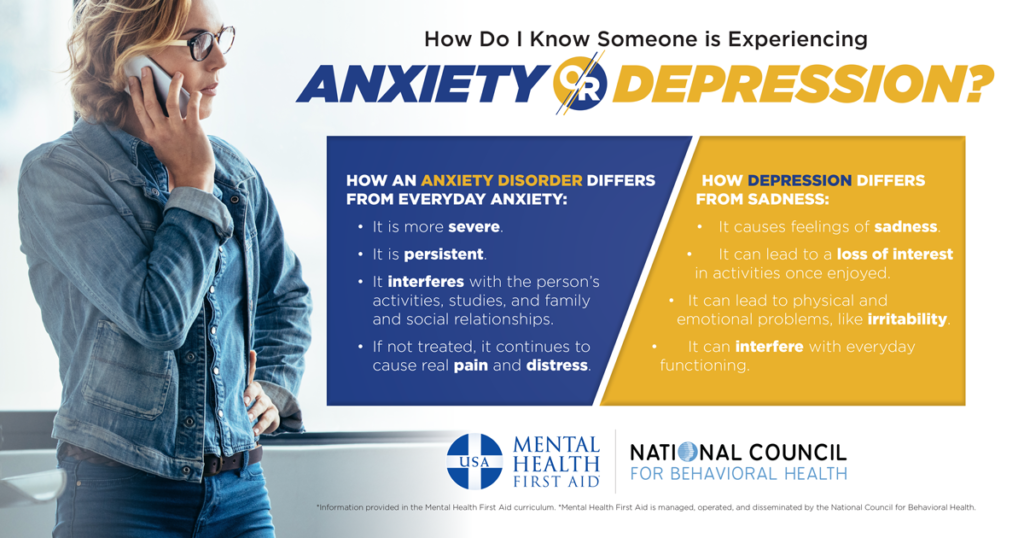If you or someone you care about feels overwhelmed with emotions like sadness, depression or anxiety, or like you want to harm yourself or others call 911.
You can also contact the Substance Abuse and Mental Health Services Administration’s (SAMHSA) Disaster Distress Helpline at 800-985-5990, the National Suicide Prevention Lifeline at 800-273-8255 or text MHFA to 741741 to talk to a Crisis Text Line counselor.
We know that these days of COVID-19 are difficult and can bring feelings of anxiety or depression. Practicing physical distancing from your loved ones, hearing constantly changing news on every channel, and not knowing what will happen is scary.
That’s why it is important that you use information from the Mental Health First Aid curriculum to not only take care of your own mental health, but also support those around you who might be experiencing anxiety or depression.
When people describe their anxiety, they may use terms such as anxious, stressed, freaking out, panicky, wound up, nervous, on edge, worried, tense, overwhelmed or hassled.
Anxiety can vary in severity from mild uneasiness to a terrifying panic attack. Anxiety can also vary in how long it lasts — from a few moments to many years.
Although everyday anxiety is an unpleasant state, it can be quite useful in helping a person avoid dangerous situations and motivating them to solve everyday problems. An anxiety disorder differs from everyday anxiety in the following ways:
Depression causes feelings of sadness and/or a loss of interest in activities once enjoyed. It can lead to a variety of physical and emotional problems, such as irritability. A person’s pain may be invisible to you while it is still interfering with functioning.
If you or someone you know is experiencing intense worry or sadness about current or future events, and it is disrupting their ability to cope with everyday life, there is support available.
There are self-help strategies and treatments that can be effective with anxiety or depression. There are also behavioral health care providers who can provide services by phone and/or secure videoconferencing, so they will be able to maintain physical distancing. If you don’t know where to start, reach out to your primary care physician.
Thank you for choosing to #BeTheDifference with Mental Health First Aid. Together, we can get through this difficult time and support our loved ones along the way.
